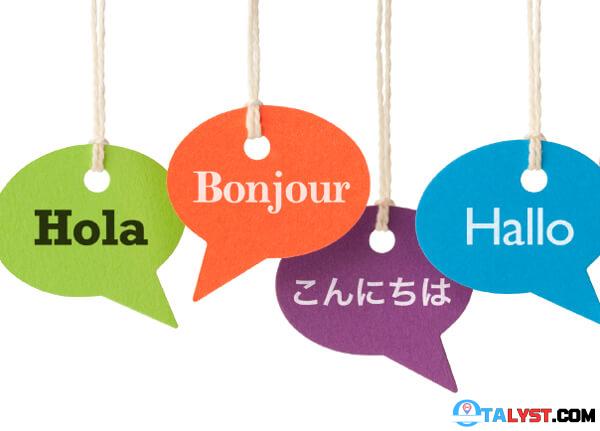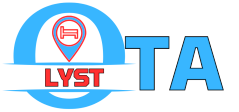Are you keen on getting a dedicated hotel website? This would be a smart choice, as your property website is often the first impression received by potential guests, and the most important point in making their decisions on whether to book…or not!
Most of your marketing decisions will be based on the ultimate goal of engaging potential guests to visit your hotel website and to make their reservation directly. It is a crucial step to gaining business, yet one that is too often neglected by independent hoteliers. We’ve shared eight simple tips for a great hotel website, and hope it helps your business gain more online presence and reputation.
Website main objectives
Keep in mind that the main goals of your website, from a customer perspective are to:
- Provide users with clear and precise information referring to their search criteria,
- Reassure them about your hotel’s quality, value and significance,
- Make it a dream and desire for them to stay at, and experience your hotel,
- Allow them to easily check rates and availability so they can book their rooms promptly and effortlessly.
Hotel Website most Important Technical Tips

1. Responsive Template
This means that your
website’s template (its structure and design) adapts itself automatically to all sorts of screen devices (smartphones, tablets, etc.) for an optimal viewing experience.
Most people today browse the Internet on their phones or tablets, especially when traveling.
2. Quick Navigation
You need a website that is fully functional, where content and images load rapidly.
When browsing for information online, it can be frustrating when one encounters a site that is delayed and takes too long to load.
Some travelers might see this as an opportunity to switch to another website.
3. Booking Engine
A Website Booking Engine makes it possible to check rates and availability for specific dates.
It is usually included in your Channel Manager package.
The Channel Manager is the tool that allows you to centralize and automatize the management of your various online distribution channels (Expedia, Booking.com, Easy-to-book, etc.).
If your current best rates are advertised on the home page, or the room rates appear next to the room descriptions, this could absolutely increase your conversion ratio.
Hotel Website Simple Marketing Tips
4. Simple Design

Choose a simple and light design design that both respects and accentuates your brand and logo graphic chart.
If in need of inspiration for these visuals, consider platforms like Freepik to browse royalty free images that can help represent your hotel’s brand effectively.
The design should transcribe your hotel positioning (your concept; the features that make your hotel unique and interesting) at first glance.
5. Clear Menu
Have a clear structure and menu that makes navigation simple and effortless.
The visitor should be able to quickly and easily find all the information he/she is searching for.
Additionally, build an effective interlink between your different web pages, to make navigation even more easy.
6. Professional pictures
An image speaks a thousand words; make your website visual!
Keep the text simple and use the maximum keywords, in order to enhance Search Engine Ranking.
Travelers prefer visual stimulus in the form of images and videos that encourages them to better visualize and experience your property, rather than reading lengthy room descriptions.
7. Communicate directly to your potential guest

Communicate regularly through
Social Media or on a blog section to inform visitors of activities, experiences, and various news that could be of interest to them.
Use personal words, and keep the content relevant to your potential guests.
This could be done by describing the list of activities available at your destination; then linking them to the corresponding pages or articles.
This way, guests are able to easily gain access to more details and information.
Your visitors will eventually share the relevant content on their social networks, thus enhancing your Search Engine ranking.
8. Multilingual content
If you would like to gain international visibility, it is best to begin with translating your website into the different local languages of the countries you are targeting.
This not only ensures you a higher ranking on Google, Bing or other Search Engines for each country, but will also offer a great convenience to potential guests and motivate them to book directly on your website.
And what about SEO?

Have you checked these 10 boxes? Congratulations! You are now ready to take the next step, which is to get more traffic, or potential guests, to visit your property website.
It begins with something called SEO (Search Engine Optimization), which refers to the techniques and strategies used to have your website appear right at the top of Google search results.
Read about the secrets of Search Engine Marketing
in our next article.
Tools like PMS (Property Management System) and CM (Channel Manager) only assist lodging establishments in operating more simply, saving time, and being more efficient compared to not using them. However, that is not the root of growth or the challenges faced in the accommodation business. If you want to effectively manage OTA channels and create stable growth, you should have a clear understanding of how OTA platforms operate, such as their nature, operational models, and how they display, calculate displayed prices, and collect prices (after deducting commissions). Of course, larger hotels that want to approach it systematically will do it synchronously from the beginning, but smaller lodging establishments wanting to reduce operational costs should overlook it and focus on optimizing display and providing outstanding customer care.
Synthesized by: OTA Lyst












































